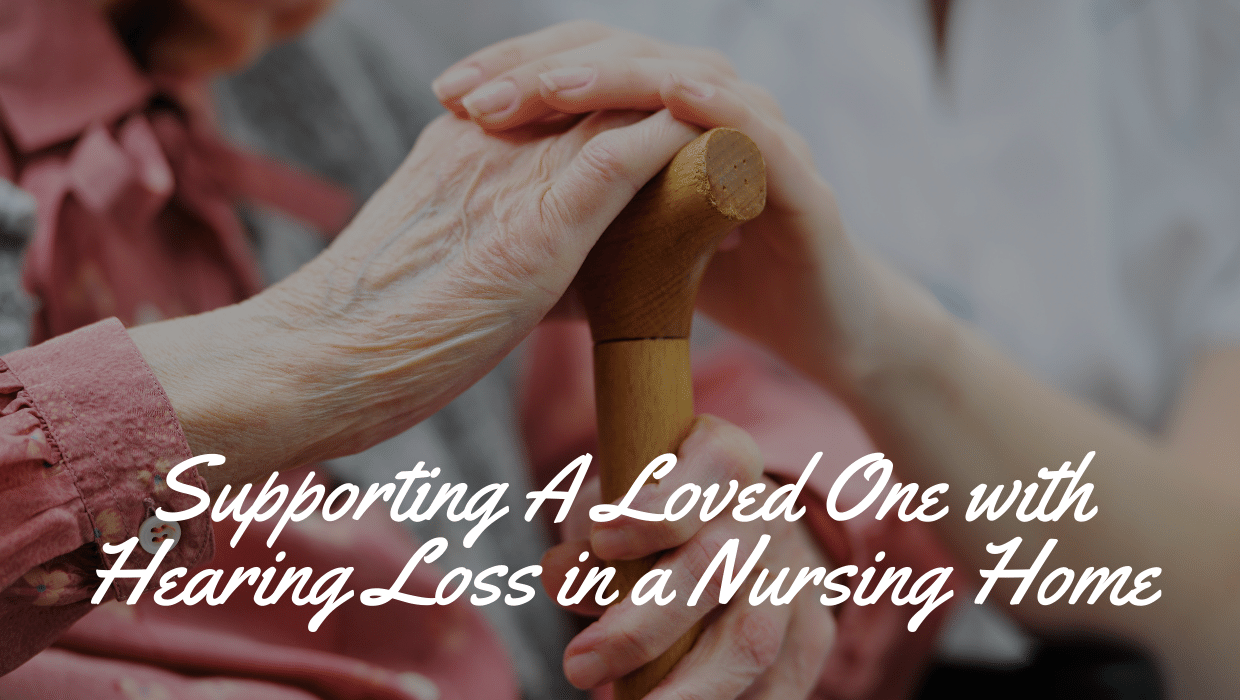
Hearing aids can be helpful in countless situations, ranging from home to errands out and about or recreational activities. But what about the transition to nursing home living?
Hearing aids remain useful devices in nursing homes, as well, but they require some concerted attention to make sure they remain useful to your loved one. In order to prevent loss, damage, or other problems that may arise, you can take a few steps to make sure that they remain in working order.
Furthermore, some older people will find reasons to resist using hearing aids. Whether it has to do with the fit, the functionality, or feelings of inconvenience, some would rather not wear them and need encouragement to do so.
There are a few simple steps you can take to make sure your loved one is getting the support they need to keep hearing aids in good working order and to actually wear them.
Form a Relationship with the Staff
Having a good relationship with the staff of the facility is an essential way to help your loved one get what they need. Nursing home workers are faced with a dizzying array of needs, and their work is often underappreciated. Take every opportunity you get to express gratitude for the people who are assisting your loved one.
The stronger relationship you have, the more you can learn about how your aging loved one is doing, as well. When it comes to hearing aids, make sure that everyone working at the facility knows that your loved one should be wearing aids. If they are aware of that need, then they will be more likely to encourage use, as well as to be sensitized to the presence of hearing loss.
Protecting Hearing Aids
In a nursing home facility, it is altogether possible that hearing aids might be misplaced or damaged, just as is possible at home. There are a few steps you can take to make sure that the aids are not lost or damaged in these ways.
Putting labels on hearing aids can help make sure they do not get misplaced. You can also encourage your loved one to store the hearing aids in a hard plastic case at night while they are not being worn.
By keeping them in a protected place, it will be harder for your loved one to lose or misplace them, and this location will also assist as a reminder to put them in in the morning.
Take Charge of Maintenance
Although most newer models of hearing aids do not require much maintenance, a few steps will keep them in working order. Perhaps the most important step is to make sure that batteries are charged and ready for use.
If your loved one’s aids have replaceable batteries, keep a fresh pair on hand at the nursing home. If you inquire about the functionality of the hearing aids when you visit, then you will be able to easily replace the batteries on the spot should they need the assistance.
As to other forms of maintenance, a simple wipe down with a clean dry cloth is a great idea from time to time, removing debris and waxy buildup. If the aids get wet through exposure to rain, humidity, or even temporary submersion, then you can follow the same practice of a hasty wipe down with a clean, dry cloth. If that doesn’t seem to get them working, many people have success with hearing aid dryers or placing the aids in a sealed bag of uncooked rice. These devices can work to extract the moisture from the inner components and prevent corrosion.
Finally, you may want to take your loved one’s aids to the hearing health provider for a double check from time to time. If small repairs are necessary, quite often they can be completed on site, but more serious damage can be resolved through a certified repair technician or the manufacturer.
With these tips in mind, you should have no problem assisting your loved one to keep using hearing aids while living in a nursing home facility, and often all you need to do is check in about how they are working as a reminder to keep using them!
